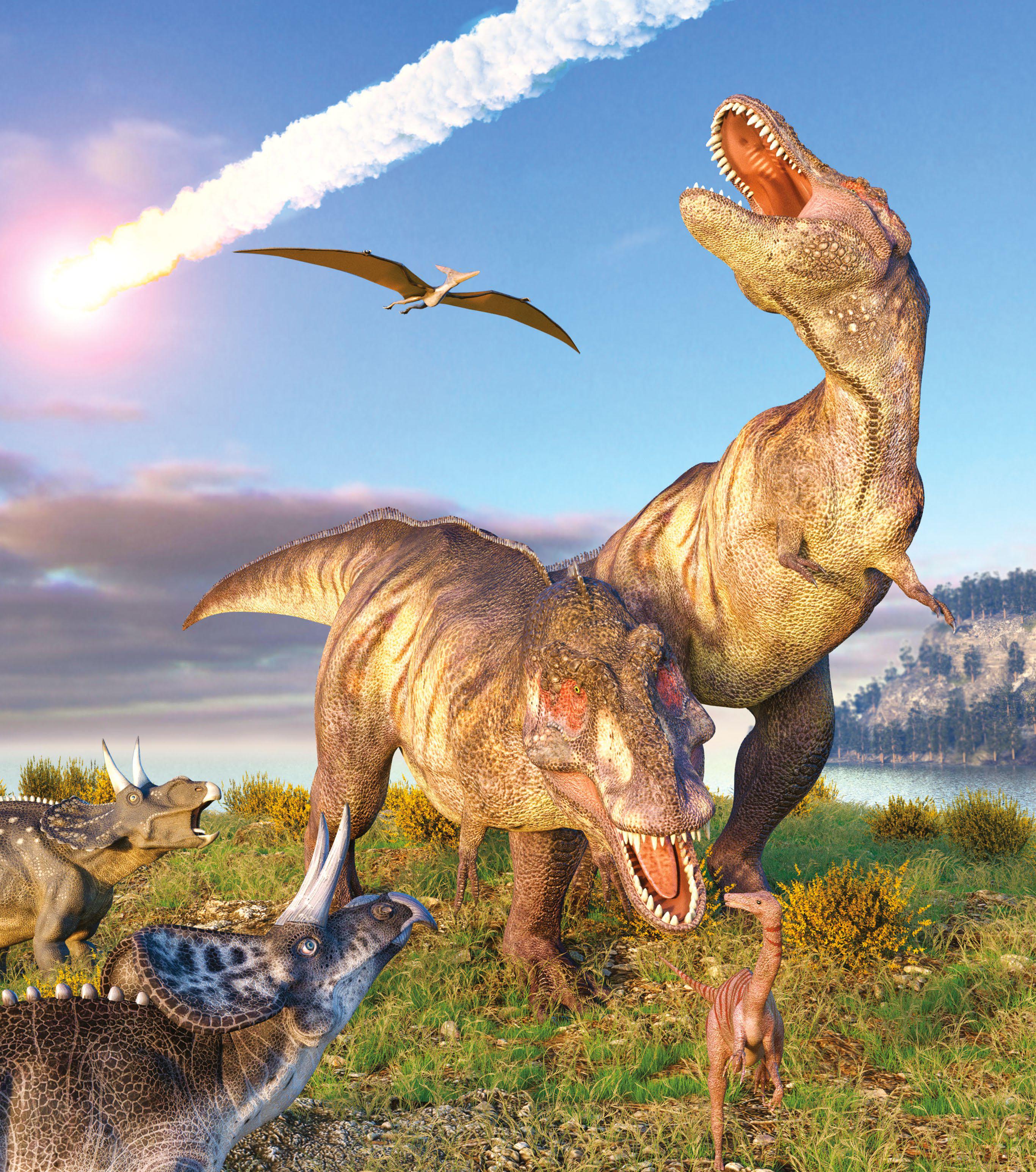Denemek ALTIN - Özgür
What killed the dinosaurs?
The Week Junior Science+Nature UK
|Issue 61
Uncover a mystery 66 million years in the making.
-

Scientists have called it the K-T event (or Cretaceous-Tertiary extinction event), when entire species of reptile-like dinosaurs, which had lived on Earth for 230 million years, vanished. Researchers agree that this mysterious event happened around 66 million years ago, but they remain undecided as to the reasons why.
The Alvarez Hypothesis
The theory that has been most popular over the years is called the Alvarez Hypothesis, which argues that a meteor the size of a mountain collided with the Earth 66 million years ago. The collision released a huge amount of dust and debris, which blocked out the Sun and caused temperatures to plunge below freezing. This led to the extinction of non-avian dinosaurs (dinos not related to birds), and many other species.
Bu hikaye The Week Junior Science+Nature UK dergisinin Issue 61 baskısından alınmıştır.
Binlerce özenle seçilmiş premium hikayeye ve 9.000'den fazla dergi ve gazeteye erişmek için Magzter GOLD'a abone olun.
Zaten abone misiniz? Oturum aç
The Week Junior Science+Nature UK'den DAHA FAZLA HİKAYE

The Week Junior Science+Nature UK
FIGHTING THE FREEZE
Claire Karwowski uncovers nature's wildest ways of fighting the winter freeze.
6 mins
Christmas 2025
The Week Junior Science+Nature UK
Cook up bioplastic decorations
Make your own eco-friendly ornaments.
1 min
Christmas 2025

The Week Junior Science+Nature UK
Should we switch off Christmas lights?
They brighten up the festive season, but they can have a negative impact on the environment.
1 mins
Christmas 2025
The Week Junior Science+Nature UK
Three spectacular illuminations
Glow Wild, Wakehurst
1 min
Christmas 2025

The Week Junior Science+Nature UK
THE LAST DAYS OF POMPEII
For the first time, an immersive exhibition about the destruction of the ancient Roman city of Pompeii has opened in London.
1 min
Christmas 2025

The Week Junior Science+Nature UK
Wildlife watch
Jenny Ackland unveils a winter wonderland of natural delights this festive season.
1 mins
Christmas 2025
The Week Junior Science+Nature UK
Make Snow globes
Create the perfect Christmas gift.
1 min
Christmas 2025

The Week Junior Science+Nature UK
Maggie Aderin-Pocock
Meet the scientist \"blasting off into space\" at the Christmas Lectures.
3 mins
Christmas 2025
The Week Junior Science+Nature UK
Make vegan eggnog
Whip up a dairy-free festive winter warmer that is perfect for cold nights.
1 min
Christmas 2025

The Week Junior Science+Nature UK
Octopuses
Meet the colour-changing, shape-shifting, fortune-telling aliens of the seas.
2 mins
Christmas 2025
Translate
Change font size
